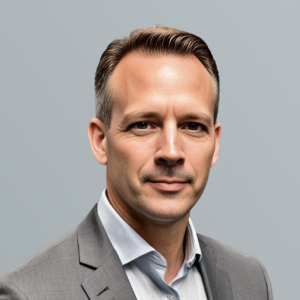Visionary Voices
The New Role
of ERP



From System of Record to System of Intelligence: The New Role of ERP
Three CIO Challenges That Can Undermine ERP Success
1
Strategic Misalignment: ERP transformations often lack clarity on whether they’re designed to cut costs or drive revenue. Without this alignment, investment priorities become muddled and executive sponsorship wanes—leading to low ROI and stalled programs.
2
Poor Data Quality and Governance: “Dirty data equals bad decisions, failed automation, and compliance risk,” Brett warns. Duplicate or inconsistent master data across finance, HR, and supply chain leads to inaccurate reporting, costly rework, and inflated project scope.
3
Fragmented Processes: Complex and siloed processes—often the result of inorganic growth—create additional barriers. Companies that grow through acquisitions frequently end up with fragmented operations that resist standardization, making ERP transformations exponentially more complex.
AI Pressure Is Changing the ERP Conversation
Clients are no longer asking if AI fits into ERP—they’re asking how. As Brett puts it:
“Business leaders now view ERP not just as a system of record, but as a platform for intelligent automation, real-time decision-making, and enterprise agility.”
But AI is only as good as the data it consumes. For AI to be effective, ERP systems must provide clean, governed, and structured data.
“You have to modernize your ERP to feed your AI. You’re pulling data from ERP into AI—not the other way around.”
Organizations that don’t invest in this foundational work won’t get the AI results they’re expecting. This shift is forcing organizations to reimagine ERP as the data backbone for AI—requiring investment in data architecture, taxonomies, and governance as part of the transformation journey.
The CFO’s Role Is Expanding—From Steward to Strategist
Brett sees CFOs transforming from traditional financial controllers focused on backward-looking reports to enterprise strategists driving real-time insight generation and predictive foresight. “Instead of overseeing static financial systems and Excel sheets, they’re looking at real-time reporting that’s dynamic, not static.” This evolution extends to risk management as well.
CFOs are also taking a more active role in scenario planning, modeling operational risks, and driving technology decisions that align with business performance. Their lens is no longer just compliance—it’s competitiveness.
ERP Clients Are Smarter—And More Strategic
Today’s buyers aren’t coming to the table cold. They’re more educated about ERP than ever, arriving with pre-work already done—process maps, maturity assessments, and clarity around their transformation readiness.
“They’ll say, ‘We’re about 70-80% ready for an ERP transformation—can you help us assess the remaining gaps?’ That’s a much more strategic starting point.”
This evolution calls for an advisory-first approach, not a product-first one.
What Sets RGP Apart: Agility, Financial Rigor, and Targeted Impact
Unlike traditional system integrators, RGP offers agile, focused interventions. We help clients address specific challenges first, building momentum toward larger transformations. What truly differentiates us, Brett notes, is our ability to quantify business value.
A key differentiator is RGP’s ability to provide value engineering and business case modeling independent of vendor incentives. Brett emphasizes the importance of giving CFOs “a financial lens to what their ROI could be”—specifically quantifying impacts on days in inventory, days in sales outstanding, fixed asset utilization, COGS, and SG&A to show how transformations will affect P&L and working capital.
Three Trends Shaping the Future of ERP
1
Business-Led Transformation: A shift from IT-driven rollouts to business-focused strategies that deliver measurable financial outcomes and enable growth.
2
AI-Ready Data Architecture: Organizations must elevate data governance and master data management and integration as core enablers—not afterthoughts—for intelligent ERP.
3
Advisory-First Engagement Models: Clients increasingly need partners who can guide readiness assessments, define value engineering models, and build business cases before selecting a system.
The Bottom Line
ERP isn’t just evolving—it’s being redefined. Organizations that treat ERP as a core enabler of business transformation will unlock competitive advantages through smarter decision-making, greater efficiency, and improved agility.
If you’re ready to approach your ERP transformation as a strategic business initiative—let’s talk.
Visionary Voices




